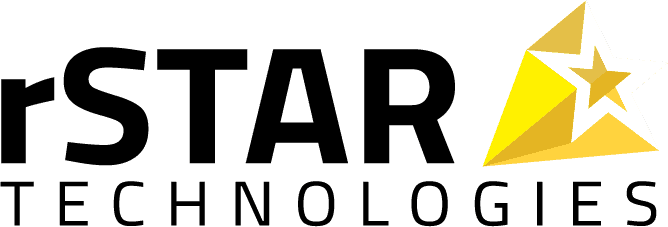The adoption of Salesforce in manufacturing is helping agile companies take advantage of technological innovations, artificial intelligence, and interconnected front and back-office systems to improve business outcomes and stay ahead of the competition.
The manufacturing sector is on the cusp of a digital revolution. Enterprises that are stuck using inefficient and siloed systems are missing opportunities.
Table of Contents
What Is the Role of Salesforce in Manufacturing?
At its core, Salesforce is a customer relationship management (CRM) software. The company has, over time, extended it to encompass more industry-specific requirements such as loyalty management, forecasting/demand planning, agreements automation, and more. It also seamlessly integrates into a manufacturing company’s enterprise resource planning (ERP) system.
CRM and ERP have distinct purposes. A CRM is customer-facing and manages customer data and interactions, identifies opportunities, and improves customer service. An ERP takes care of the backend processes such as supply chain, inventory management, accounting, and compliance.
It is common for communication among marketing, sales, and operations teams to be email driven. But the inability to gather the right information at the right time results in a needless back-and-forth, creating bottlenecks. Many companies have integrated their CRM and ERP platforms to improve efficiency, scalability, streamline workflows, improve collaboration, and boost productivity. Salesforce Manufacturing Cloud was developed to provide manufacturers with a comprehensive view of their entire operations and support their digital transformation.
Let’s delve deeper into the benefits of Salesforce in manufacturing.
Maintain Up-to-Date Account Information
Access to accounting information is useful for sales teams when determining which customers pay on time or have unsettled bills. An integrated CRM-ERP system is a boon to your segmentation and targeting capabilities. Identify the big spenders and put more effort into retaining their business by offering exclusive rewards or rebates. You can also optimize profitability by looking for opportunities to cross-sell and up-sell. Get alerts on accounts that are up for renewal so you can start following up immediately.
Are you still managing your rebate programs using spreadsheets? Rebate Management can be added to Manufacturing Cloud to fully automate the entire rebate program. It will help you track, manage, approve and issue rebates quickly and easily, and save countless hours of data entry. Well-managed rebate programs can help you build customer loyalty and repeat sales, and automating the process is easy with Rebate Management and Manufacturing Cloud.
Create Accurate Quotes and Proposals
Creating accurate quotes is particularly challenging for companies that offer complex products. A sales offer begins with what is known in the industry as Configure, Price, Quote (CPQ). It is the process where the sales rep starts building a quotation for a prospect. Using outdated pricing information can result in costly mistakes that can be difficult to reverse. Backtracking on a misquoted price can erode trust and compromise the relationship.
However, with an integrated ERP system, as you’re creating quotes, the information flows into Manufacturing Cloud. It is converted into sales agreements, thus ensuring accuracy. CRM/CPQ-ERP integration allows sales teams to access the correct pricing and optimal bundle for any product configuration, including customizations and discounts. Salesforce CPQ enables sales reps to generate customizable proposals with high accuracy. It also offers intelligence tools that consider factors such as competitor pricing. This streamlines the process for a more seamless buying experience.
Improve Customer Service and Aftersales Support
The pandemic and geopolitical conflicts have caused supply chain woes resulting in delivery delays and stockouts. When disruptions hit, customers demand answers and speedy resolutions. Adopting a customer-centric approach is challenging for cross-functional teams relying on inefficient processes.
Communicating and solving issues is easier when you have complete visibility of previous customer interactions, sales agreements, order status, service requests, and other pertinent information. In collaborative ecosystems, you can engage in a higher level of personalization and provide more value that can lead to more loyal customers. Satisfied clients become your best brand ambassadors and can bring more business through word of mouth.
In fact, a report from PwC revealed that 86% of buyers don’t mind paying more if a company delivers an excellent customer experience (CX). Your CX strategy can be a key brand differentiator that can trump price considerations.
Focus On High-Value Customers
Access to accounting information is useful for sales teams when determining which customers pay on time or have unsettled bills. An integrated CRM-ERP system is a boon to your segmentation and targeting capabilities. Identify the big spenders and put more effort into retaining their business by offering exclusive rewards or rebates. You can also optimize profitability by looking for opportunities to cross-sell and up-sell. Get alerts on accounts that are up for renewal so you can start following up immediately.
Are you still managing your rebate programs using spreadsheets? Rebate Management can be added to Manufacturing Cloud to fully automate the entire rebate program. It will help you track, manage, approve and issue rebates quickly and easily, and save countless hours of data entry. Well-managed rebate programs can help you build customer loyalty and repeat sales, and automating the process is easy with Rebate Management and Manufacturing Cloud.
360-Degree Visibility for Better Decision-Making
The amount of data that needs to be processed increases exponentially as your business grows. Marrying your CRM and ERP saves time and effort by eliminating the need to cross-reference and re-enter values into different systems.
When information is kept up-to-date and stored in a unified system, you can easily access data to generate more accurate and reliable reports. Broad data visibility can give you actionable insights. This is essential for timely decision-making. For instance, manufacturing managers can view changes in demand and customer preferences to plan materials purchases and production volumes to avoid excess inventory or shortages.
Einstein Intelligence is an advanced AI program that helps you make the most out of your data. It keeps learning over time, using historical numbers and incorporating information from sales emails. Because it can find hidden patterns in complex data sets that are beyond human capabilities, it can have profound implications for data-driven decision-making.
In today’s fast-paced world, the speed at which your sales team can access reliable real-time customer and product information is imperative. You are falling behind if your team still uses cumbersome manual processes or disjointed legacy systems.
We can show you how to keep up with digital innovations in manufacturing to future-proof your business. rSTAR is a full-service Salesforce partner that can help your company modernize customer experience (CX) to ensure a frictionless buyer’s journey. We enhance your data accessibility by integrating your CRM and ERP systems so you can extract more value from your business operations.
Read more about how we assisted other companies in realizing their digital transformation through our case studies. Contact us today to speak to our experts.






